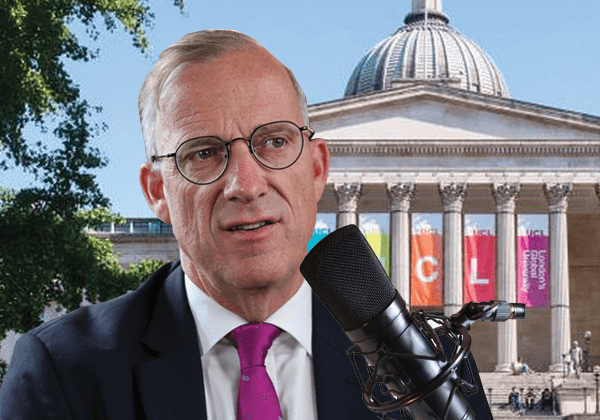Former University of Sydney Vice-Chancellor Michael Spence suggested last Monday that he would allow Holocaust deniers to speak on campus.
During an appearance on Times Radio, Spence, now the President and Provost of University College London (UCL), said that he would allow “anybody to speak who was invited by an academic or by a student, so long as the speech was lawful and there weren’t going to be public order problems that we couldn’t control”.
When asked whether he would allow a Holocaust denier to speak at UCL, given that it is not illegal to do so, Spence responded that their commitment to free speech was “deep,” and that “the University would obviously have a responsibility to make sure that its Jewish and other students and staff were looked after” if such an event took place.
Current USyd Vice-Chancellor Stephen Garton told Honi his position was that “all our community should feel safe and free to discuss ideas in a civilised manner,” and that the University does not tolerate racist or anti-Semitic language or behaviour on campus.
“If someone from our community invited a holocaust denier to our campus so that they could share their views, we would consider the legality of the proposed speech, closely scrutinise the academic rationale for that decision and take action as necessary in accordance with our Charter and other relevant policies,” Garton said.
Holocaust denial is not explicitly illegal in Australia, but can be prosecuted as hate speech or racial vilification.
Spence clarified his position in a comment to The Telegraph, saying that “Personally, I doubt that the views of a Holocaust denier would be lawful, and I believe that they ought not to be if they are. But that was not the question put to me.”
He promised to ensure that “UCL remains the kind of place in which such a speaker would never be invited and our university tackles anti-Semitism in all its forms.”
As Vice-Chancellor, Spence used freedom of speech to defend USyd’s engagement with the Ramsay Centre which proposed degrees in Western Civilisation.
The Ramsay proposal received significant opposition from students and staff concerned that USyd would receive funding from an organisation with a right-wing political agenda, compromising academic independence.
Spence subsequently wrote in The Sydney Morning Herald that USyd should be “a place where ideas can be freely shared, including those that are controversial or unpopular.”
SRC President Swapnik Sanagavarapu told Honi: “It is extremely telling that Michael Spence boasts of his commitment to free speech when excusing holocaust denial, but has a long record of repression of student protests and student political speech.”
“Additionally, at USyd, he was responsible for suppressing academic freedom, with the Federal Court ruling that the USyd [Enterprise Bargaining Agreement] gave no enforceable right to academic freedom for staff.”





